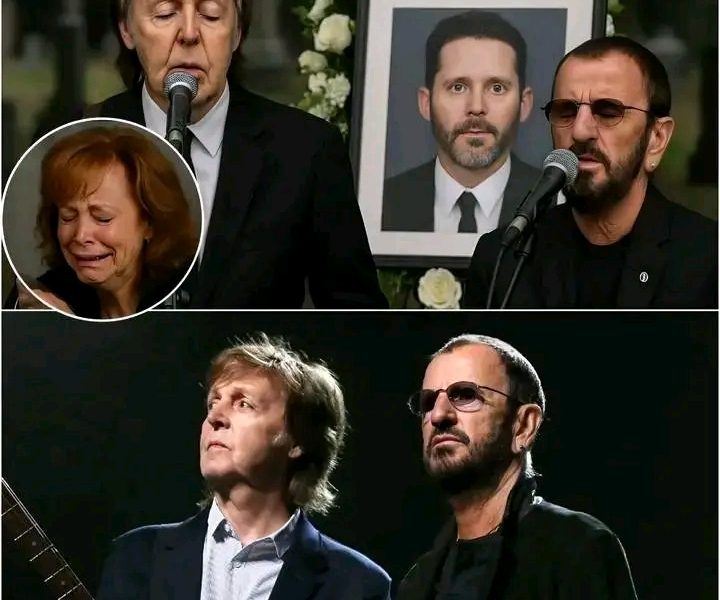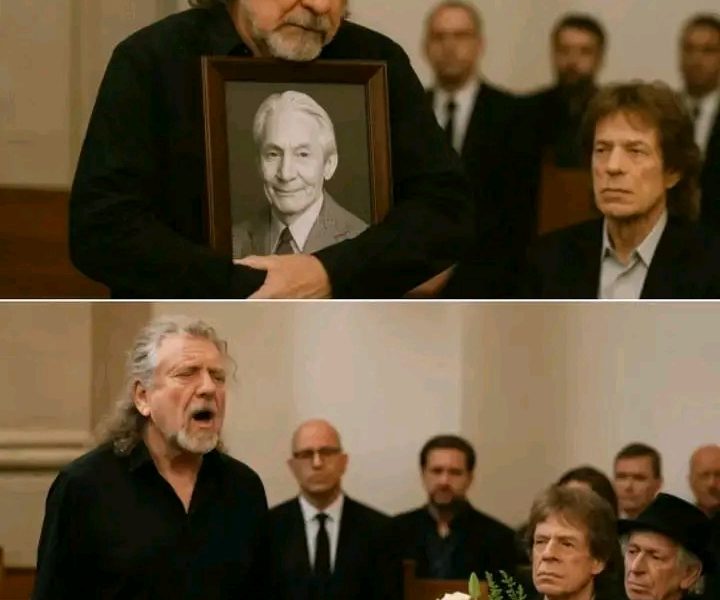**Title: All Guns Blazing – Glenn Tipton and the Forging of Steel**
The stage was a furnace, and the air in front of it felt like a blast from a jet engine. Red-hot lights slashed through the dark, illuminating the silhouette of a man carved from decades of riffs and rebellion. Glenn Tipton stood center-left, his head bowed just enough that his wet blond hair dripped shadows across his face. The Painkiller tour had been raging across continents like a war machine—unstoppable, unrelenting—and tonight, they were in Munich. Packed arena. Midnight crowd. Volume turned to apocalypse.
Judas Priest was a creature reborn. With Scott Travis on drums now—a man whose double-kick sounded like thunder crashing through a cathedral—they had found a new level of speed and ferocity. The *Painkiller* album was the proof. But live? Live was where it bled.
“All Guns Blazing!”
The lights went nuclear. The opening riff—Tipton’s riff—hit like a chainsaw on concrete, serrated and unapologetic. The crowd surged forward, and a wave of fists erupted. Tipton glanced up, his fingers already halfway into the intro’s snarling dance. His Hamer GT Custom guitar screamed with menace, laced with that signature Tipton tone: bright, surgical, with just enough bite to make your bones remember it.
K.K. Downing, all leather and flying V, was already prowling the opposite side of the stage, throwing his own fury into the sound. But it was Glenn tonight—he had the fire in his hands. The solo was coming. The solo that made “All Guns Blazing” more than a song—it made it a statement.
Tipton wasn’t showy in the same way as the 1980s metal flash-pickers. No sweeping, no tapping unless it served the music. His fingers didn’t play notes; they **cut** them from the air. His strength wasn’t just speed—it was clarity. Every run, every bend, came from somewhere deeper. A place full of whiskey-soaked nights and amplifier hums in empty rehearsal halls.
As Rob Halford howled the line—**“Aim for the heart and shoot!”**—Glenn stepped forward into the floodlight. The solo hit. A molten shard of harmony, then a rapid-fire staccato climb, like a machine gun melting under its own speed. His right hand was a piston. His left, a blur of muscle memory. That solo wasn’t clean—it was **precise**. A sniper shot, not a flamethrower. He bent notes until they cried, then let them drop into an arpeggiated shred line that spiraled up, paused, then dove back into hell.
He didn’t smile. He never did during solos. His jaw tightened; his eyes focused past the crowd. It wasn’t arrogance—it was trance. **This was ritual.**
The Painkiller tour had pushed the whole band to extremes. Tipton had always written with control, often the architect behind the more melodic pieces, the harmonies, the bridges that elevated Priest above the riff-thrashers. But *Painkiller* had forced him to weaponize everything. “Metal Meltdown,” “Night Crawler,” and of course, “All Guns Blazing”—these weren’t just fast. They were **surgical strikes** of heavy metal.
Backstage, before the show, he’d barely said ten words. He never did. Tipton would arrive with his guitar in hand, already tuned, already checked—usually by himself, rarely by a tech. He’d sit on the amp case, headphones on, running scales that he probably didn’t need anymore. But it wasn’t about practice. It was about readiness. You didn’t go on stage with a song like *All Guns Blazing* and hope muscle memory would carry you. You *commanded* it.
The final bend of the solo peaked. Feedback howled. Glenn slid into the outro riff, hands perfectly synced with K.K., like two halves of the same mechanical beast. Behind them, Travis fired the drums like artillery. Ian Hill, silent as ever, held the line with that anchor-heavy bass.
The crowd detonated. Tipton stepped back into the shadows near his amp, wiped the sweat from his brow with a leather-wrapped wrist, and flicked his gaze over the setlist gaff-taped to the stage floor. “Leather Rebel” next. Good. Another scorcher.
Backstage after the show, a light haze of steam and smoke hung in the dressing room. Glenn was quiet, as always. He didn’t drink much anymore—nothing before a show, nothing that dulled the edges. But after? Maybe one. A scotch. Neat.
“Solo sounded tight tonight,” said Halford, voice still hoarse from the screams.
Tipton just nodded. He pulled the Hamer from its case, wiping the strings down gently. The neck still felt warm from the set. “Felt good,” he said finally.
“You hit that second run perfect. Right before the sweep.”
A small smile. “Been working on that phrasing.”
That was Glenn. Never satisfied. Even after a show that levelled an entire European arena, he was already running through the few milliseconds where he *might* have picked slightly sharper or bent a microtone wider. That’s what made him not just a guitarist—but a craftsman. *A builder of metal*.
The band eventually filtered out. Glenn stayed back. He liked the quiet. The hum of the amp cooling down. The dim hiss of sweat still evaporating from his leather sleeves. He opened a notebook—always kept one during tours. No lyrics, no diary entries. Just riffs. Fragments of melodies. Finger exercises. Arpeggios in F# minor. Little tonal ideas he’d later stitch into something surgical. Maybe something for the next album. Maybe nothing. But it mattered that they were captured.
When Tipton wrote, he never chased trends. Priest had already seen the rise of glam, the fall of thrash, the explosion of grunge on the horizon. None of it mattered. *Painkiller* wasn’t a response to anyone. It was an exclamation. An apex. A way of saying: **We are still the gods of this.**
And Glenn? He was the one writing in stone.
The next day, in the tour bus rumbling across the autobahn, Tipton sat with his headphones on again, isolated. His fingers moved against the fretboard silently, rehearsing a new transition. Something angular. He could hear it already in his head. Clean. Sharp. Relentless.
They’d hit Prague next. Another full house. Another inferno.
Another solo.
And when “All Guns Blazing” came around again—when the lights exploded and Halford growled that war cry—Glenn Tipton would step forward once more, eyes in a squint, guitar locked and loaded. The solo would come like a hammer strike wrapped in electricity. And the crowd would scream because they knew.
They knew the truth:
When Tipton played, it wasn’t just metal.
It was **precision warfare**.
It was **sacred geometry** on six strings.
It was **all guns blazing**.
Let me know if you’d like a version focusing more on the band dynamic, technical analys
is of the solo, or a continuation from another night on the tour.

